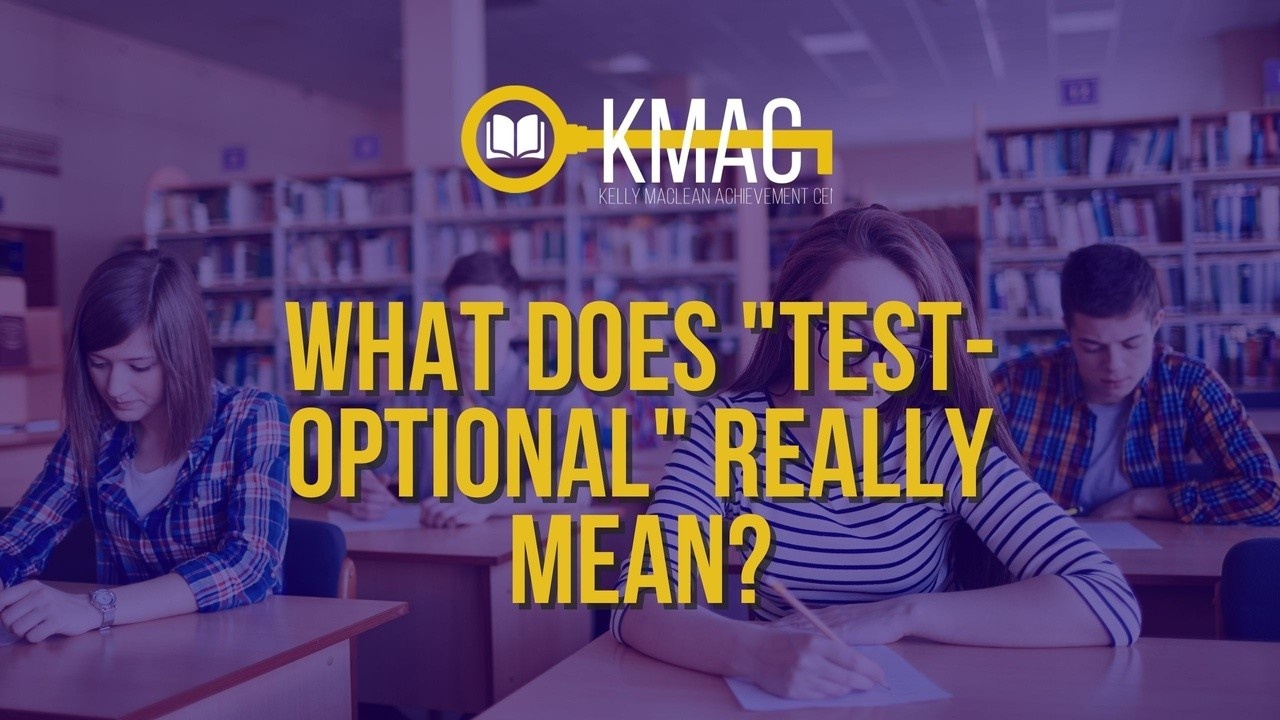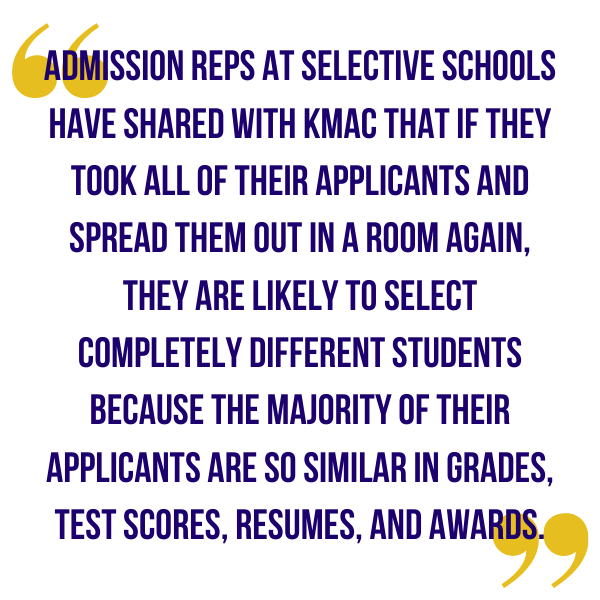
What does "TEST OPTIONAL" really mean...?
Jan 12, 2022What does "TEST OPTIONAL" really mean...?
Test optional means you do not need a test score attached to your application for your application to be considered complete and reviewed for admission. It does not mean that students without a test score will be reviewed in the same way, despite what some colleges advertise. Unfortunately, human judgment will still play a huge role in admission decisions during this coming application cycle. So much so that many admission reps at selective schools have shared with KMAC that if they took all of their applicants and spread them out in a room again, they are likely to select completely different students because the majority of their applicants are so similar in grades, test scores, resumes, and awards.
What we have witnessed repeatedly is that students who submitted test scores, even when their scores were slightly below the average for a school, have been granted acceptance at a much higher rate than students who do not submit scores.
Does sending a test score matter?
Let's be blunt: Yes it does.
Test Optional— Scenario
Consider 10 students from your child’s high school that are all hovering around a 4.0 GPA. Each student has a similar list of activities. They all want to attend the same school.
Imagine that the this highly desired college is expecting to take 5 students from that particular high school this year. Of the 10 applicants from that school, who all look similar based on grades and resumes, 7 submit test scores. Out of these 7 students, 4 have scores over 29, and the other three have scores of 28. As an admissions rep, the 4 who have over a 29 ACT would most likely get in, leaving one last spot open. This last spot could be filled by one of the students that the school knows scored a 28 on the ACT, or by a student without a score.
Do you think a school would be more likely to admit a student that they know has a solid ACT score, which suggests that they would be a strong candidate and successful in college, or a student without a score measuring their ability? Sure, the student without the score may be just as— or even more— capable as the student with the score, but admissions reps won't know that.The student with the submitted test score has also submitted proof that they are statistically more likely to succeed in college— even if in reality, both the students with the test scores and without the test scores are similarly high achieving and would similarly thrive in the college environment.
Several parents have said, “yeah, but won’t colleges understand?” The colleges are the ones that are saying that the tests are optional after all, why would they prefer applicants with test scores?

As we have mentioned in previous blogs, colleges are businesses, and test optional was designed by the businesses to get more customers. The business of college is to “get heads in beds”, fill the class, bring in income, admit students who are likely to graduate.
With COVID wreaking havoc on testing for almost two years, there are hundreds of thousands of students who have not had a chance to test— the entire state of California did not have a single test available until this past July— and even then, it was at an extremely limited number of sites. This is the case in many areas. Colleges (businesses) are not going to tell those students to not apply. Additionally, many urban and rural school districts across the country were not in person during the spring when schools tend to give the free ACT /SAT to their juniors. Once again, colleges are not going to eliminate all of those students as potential admits. So, to make it fair they instituted the 'Test Optional' policy.
The reality is that for students who have had the opportunity to test, where their classmates are submitting test scores, a score will be expected. The lack of the score could trigger an admission officer to think that the student's score must have been really low if they did not submit it. Or they may feel a student is trying to take a shortcut and just not take the test, making them seem lazy.
 This may seem harsh, but look at the selectivity of college admissions as a precursor to your child applying for a job. You would likely advise them to not only send a resume, but also a cover letter – even though it is not explicitly required. Yes, it is more work for them, just as the test is more work to score well, but you want to give your child every possible opportunity to display their skills and abilities.
This may seem harsh, but look at the selectivity of college admissions as a precursor to your child applying for a job. You would likely advise them to not only send a resume, but also a cover letter – even though it is not explicitly required. Yes, it is more work for them, just as the test is more work to score well, but you want to give your child every possible opportunity to display their skills and abilities.
Remember, your child is not just competing against other students from their high school; they are competing against students from all over the country. Give them a leg up over their peers.


